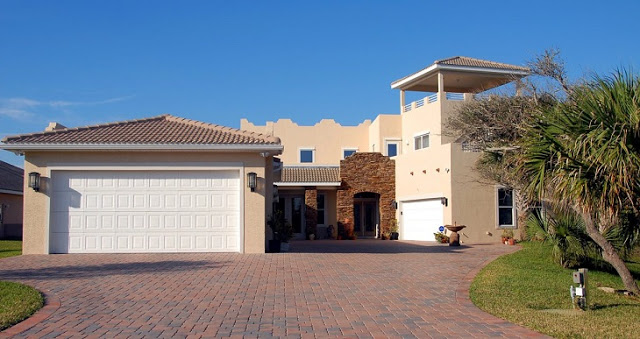 |
Working Process of Permeable Paving
The permeable pavers are been designed with open cells that are packed with grass or gravel. These open cells allow water to flow through it and get absorbed by the ground beneath it. It is most commonly used in sidewalks, driveways and low traffic areas. The most common types of permeable paving used are:
- Concrete or Asphalt: They are the traditional materials that are used for pavements or driveways. It is durable and strong and gives a smooth finish to your pavements.
- Plastic Pavers: The plastic grids used in these pavements are of a honeycomb shape. It allows the growth of vegetation through these holes.
- Concrete Pavers: The concrete blocks help in water permeability and better drainage.
Benefits of Using Permeable Paving
Nowadays most of the homeowners love to install permeable paving in their homes, rather than going for the traditional ones because of its visually appealing modern look. Some of the major advantages of laying permeable pavement include:
- Reduces Puddles: One of the worst scenarios you can see in front of your house is puddles of water everywhere. It is hard to prevent puddles on smooth surfaces. As permeable paving promotes natural drainage, you can easily prevent this. During the installation process, small openings are created for water to pass through. Therefore, it is the best option to reduce the puddle of standing water.
- Natural Filtration: It helps in the natural filtration process. When the rainwater is passed through the ground, natural filtration takes place. This helps in the removal of impurities and pollutants in the water and stops it from getting polluted.
- Prevention of Flood: Not all floods are caused by overflowing rivers; the capacity of drainage also has a major role in it. Permeable paving can help in preventing flood by absorbing the water and directing it on to the drainage rather than allowing it to get to build upon the surface.
- Reduces Heat Island: In cities and towns, it is common to see heat islands. This is because most of the land is covered by asphalt and concrete. The main highlight of these surfaces is that they absorb heat when there is an increase in the temperature.
- Environment-Friendly: Only natural and sustainable materials are used for developing permeable paving. The recycled materials used range from, marble, natural aggregate and recycled grass. The resin-bound pavements are derived from natural plant extracts. This feature has made it stand out from the crowd. Most people who love to be surrounded by environment-friendly environment install permeable paved surfaces in their homes.
If you are looking for durable, cost-effective pavements for your project, then permeable pavers are smart choices. It is always imperative that you choose dedicated professionals for your paving systems who can help you build an effective and appealing pavement for your home.






0 comments:
Post a Comment